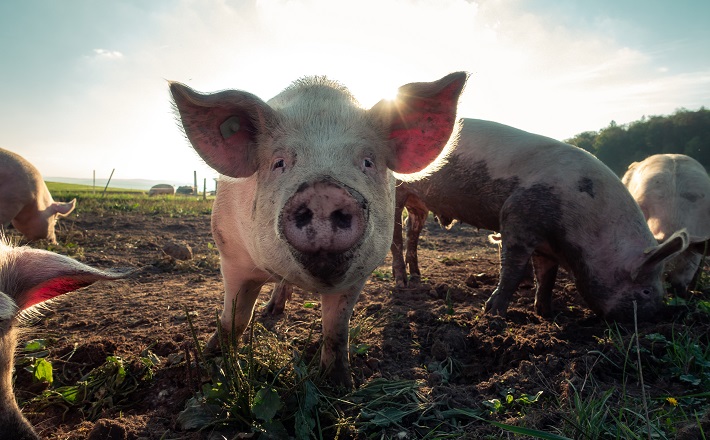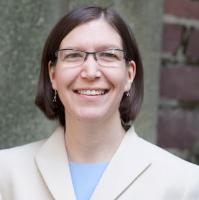Commentary on Isaiah 65:1-9
Isaiah 65:1-9 is the beginning of a response to the communal lament in the preceding chapter (Isaiah 64:1-12).
That lament, a combination of a call for divine speech and action with a confession of sin, offers a window into the sociological and theological worldview of Jerusalem in the time when those who had been forcibly removed by the Babylonians were returning from their exile. Questions remained about how their powerful God had let the holy city Jerusalem fall in the first place and how that same powerful deity would continue to let Jerusalem languish. “After all this, will you restrain yourself, O LORD? Will you keep silent, and punish us so severely?” (Isaiah 64:12).
In reply, Isaiah 65:1-9 presents themes of divine presence, divine speech and silence, and future promise.
Hide and seek
In response to the question in Isaiah 64:12 about whether or not God will continue in silence, we find in Isaiah 65:1-5 a description of what seems to be a game of divine hide and seek. God here is depicted as the youngster who hides almost out in the open and can hardly make it through the game, instead crying out before being properly found. God gives away the hiding spot every time, wanting only to be reunited with the seeker. Yet, in this case, no one is seeking (verses 1-2). Rather, the hoped-for seekers are off doing something else entirely (verses 2-5).
While the brief descriptions of offering incense (or particularly smoky offerings; verse 3), sitting inside tombs (verse 4), and spending the night in secret places (perhaps between rocks; verse 4) are not fully understandable, they appear to refer to cultic practices that run counter to more orthodox worship practices. Certainly, the eating of pork in verse 4 runs counter to cultic law and practice (Leviticus 11:7).
Yet, these practices evidently supply those who take part in them with enough self-assurance to claim a certain amount of holiness (verse 5). We need not know the precise historical antecedents to these actions to understand their implication: Those who now seek the LORD’s action and presence have in the past sought such action elsewhere. One might replace these ancient cultic actions with any number of more modern idols: media, hobbies, food, possessions, and anything else that seeks fulfillment or self-assurance outside of relationship with God and neighbor.
The theological theme of divine hiddenness is rich and broad. While the language here does not mirror exactly what the 16th-century reformers meant by the hiddenness of God, it is similar in that God will be found in places where the people do not expect. In Isaiah 65, God is found not in esoteric rituals or in the inner circle of knowledge but rather in that place where God desires to be found — in this case right out in the open with arms outstretched.
Silence and speech
Although the lament in chapter 64 takes divine silence as judgment, it is God’s speech, when it comes in chapter 65 that actually judges. God will not be silent, but the word spoken will be one that revisits the people’s own iniquities upon them (Isaiah 65:6-7). Once again, the reason given has to do with unauthorized cultic practices that have been passed down to them from their ancestors. The bodily idiom of repayment “into their laps” (see Psalm 79:12; 89:51; Jeremiah 32:18) emphasizes that this the consequences for their actions will not be academic or abstract. One can almost imagine someone doubling over as their extra-curricular worship practices come back to them like a whizzing boomerang and hits them in the stomach. It is as if God, in silence, has been holding these consequences at bay but, having been begged to speak and act, now allows them to return to their source.
Promise
God’s speech takes a more merciful tone in verses 8-9, as it addresses God’s chosen servants rather than those engaging in alternate worship practices. The agricultural metaphor of clustered grapes on the vine, ready to be harvested and fermented into the blessing of wine, proclaims that the servants of the LORD are also ready for the harvest. While the metaphor of harvest and reaping can be a violent image (see also Isaiah 17:4-11), here the harvest image promises that as harvested grapes will become the blessing of wine, so shall the chosen servants live to see the blessing of descendants.
This week’s passage ends with this word of promise and blessing, though the passage itself continues to vacillate between blessing for the servants of God and reaping consequences sown by the unfaithful (verses 10-15) before ending in a full-blown promise of a new creation (verses 16-25).
This vacillation, hinted at in verses 1-9 and expanded in the rest of the chapter, infers a divided community with divided loyalties. Such a community is not difficult to imagine, mirroring as it does the reality in which many live. A preacher might choose to describe the rest of the chapter, not to so much exhort hearers to choose the right side or feel smug in their faithful actions but rather to build on the complicated nature of faithfulness in a world of many choices and the ultimate hope that in the end, through all the twists and turns of harvests and consequences, what lies at the end is a sure and certain promise of a new creation in which faithfulness is the air we breathe.


June 23, 2019